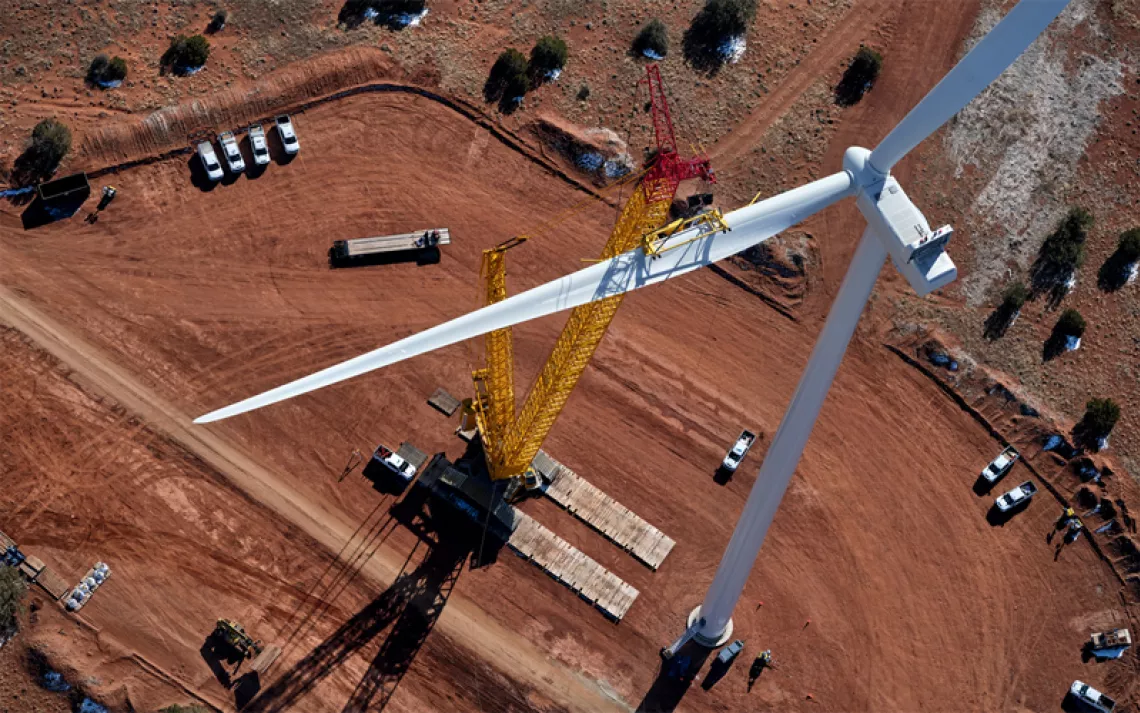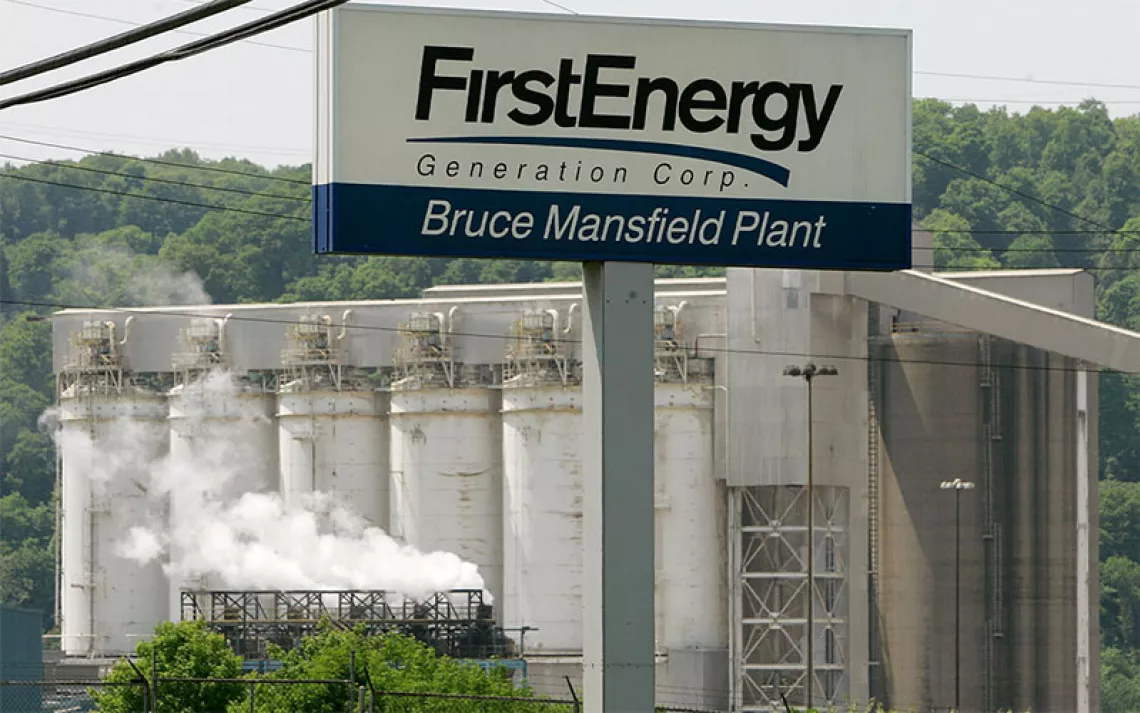How a Green Job Changed An Ex-Con's Life
Every day, the clean energy revolution is creating new jobs for American workers. As part of an ongoing series, Sierra asked one of them to tell us his story.

Lawrence Harris, Senior Team Leader, Green City Force, Brooklyn, New York. | Photo by Winnie Au
Green City Force prepares low-income youth for sustainable careers. I supervise up to 40 AmeriCorps members in the field doing energy audits and energy outreach. We speak to thousands of people in New York City. On Fridays I instruct a class at NYU's Urban Future Lab with Roots of Success (rootsofsuccess.org). It's a green curriculum that teaches high school and college students about alternative energy, waste, recycling, transportation, and how to be a green entrepreneur.
I grew up in the South Bronx. My family was riddled with drugs and mayhem. I've got three brothers who I've never met. My father was taken away when we were babies, and I've never met him. But I've always been the guy who doesn't let anyone outdo me. When I went to school, I had a 4.0 my first semester, and I was living in a group home. When I caught the drug case, everybody thought I would never make it home from prison. Then they said I'd never get a job. I've always beaten the odds.

Sign up to receive Sierra News & Views
Get articles like this one sent directly to your inbox weekly.
With this action you affirm you want to receive Sierra Club communications and may vote on policy designated by the Sierra Club Board.
I had a sentence of 62 years to life for drugs under the Rockefeller drug laws [state legislation imposing mandatory minimum sentences, which were revised in 2009]. After 14 years I came out and was looking for something that could make me marketable and let me give back to my community--the same community that I once used to destroy. I have a background in electrical engineering; that drew me to Roots of Success. It was a perfect fit.
I realized early that green jobs were going to be the big thing to hit the African American and Latino communities. Things are going to change only if we all get a piece of the pie.
Kids in urban neighborhoods know about my background. For some reason, and this is not good, they look up to guys like drug dealers. When I bring the message to them that Green City Force has benefited me and it's benefiting my family and my community, the message grabs them even more. They can see the fruits of my labor. That's part of the reason I'm successful. I've been home for going on five years, and I've been working for going on five years.
I give it my all. That's what I tell my youth: You've got to go hard. If you're going to be a maintenance guy, be the best maintenance guy. Executive director? Be the best executive director. Your title shouldn't matter. Just be the best at it.
Our current project is at the Red Hook housing development. It's the second largest in New York City, with close to 3,000 apartments. We have about 30 or 40 corps members knocking on doors and offering energy-efficiency tips, handing out CFL lightbulbs, that sort of thing. Recently I had to talk a guy into putting his gun down. He'd approached one of my team members. When I told him how much time I had been sentenced to, he started to ease up. Once I had him listening, I knew I could do something. After talking him into putting the gun down, I talked to him about changing his life. He's 22 years old. Now he's going to an information session for Green City Force.
The project I loved most was the city's Cool Roofs project. We coated over 2.5 million square feet of rooftop from a black surface to a white titanium surface that reflects 90 percent of the sun's rays and drops a building's temperature by 30 percent. All these rooftops have stories. You find bullets on them; people have done animal sacrifices up there. But what really shook me was 40 stories up in Harlem, looking across the skyline at New Jersey. It was amazing. Not long before that I was staring at a cell wall in a maximum security prison.
What clicks with the youth is when you talk to them about a career that's foreseeable. A lot of the youth don't think long-range. I tell them this is a huge industry, that the jobs are here, and in their neighborhoods. But they need more than words. They see where I came from and who I am now. They need to be able to say, "I've seen it with my own eyes." It gives them motivation.
 The Magazine of The Sierra Club
The Magazine of The Sierra Club



